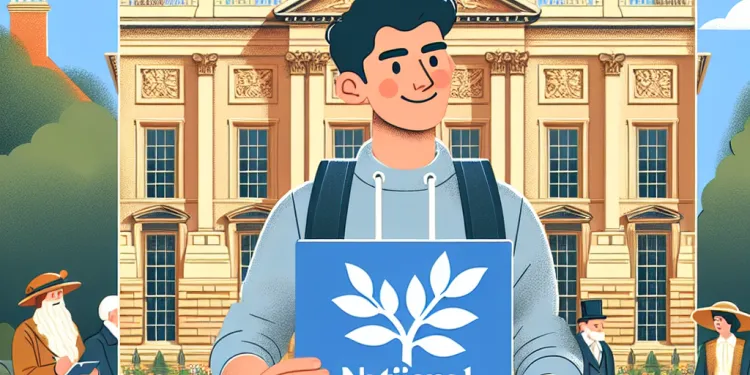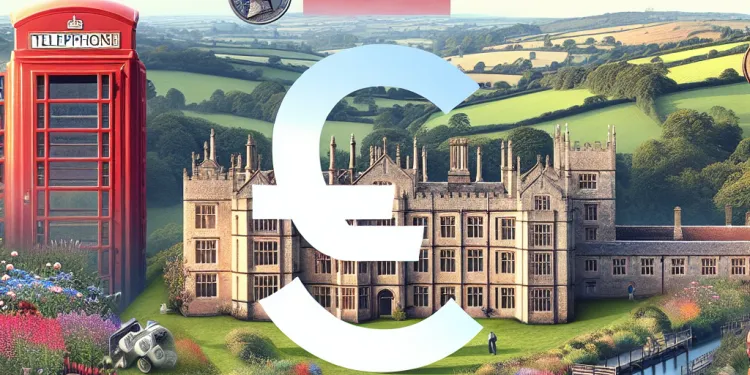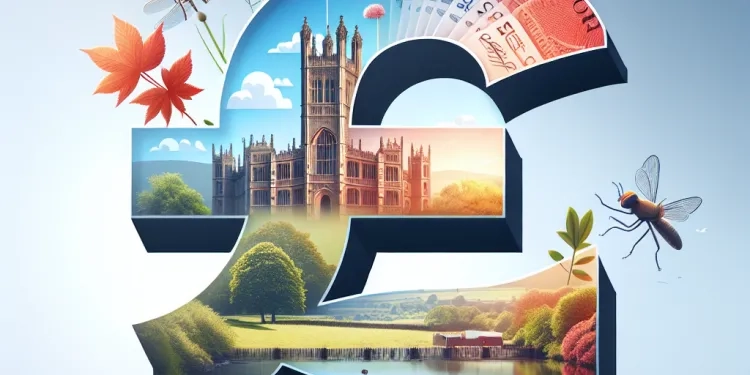
Find A Professional
More Items From Ergsy search
-

How To Protect Family Assets | Trusts Explained UK
Relevance: 100%
-

TRUSTS EXPLAINED I HOW TO PROTECT FAMILY ASSETS
Relevance: 92%
-

What is the National Trust?
Relevance: 87%
-

What are National Trust Jobs?
Relevance: 84%
-

What types of positions are available at the National Trust?
Relevance: 80%
-

Is prior experience required to work at the National Trust?
Relevance: 71%
-

Can I get a job with the National Trust if I am a student?
Relevance: 71%
-

Can I work for the National Trust part-time?
Relevance: 71%
-

What is the work environment like at the National Trust?
Relevance: 66%
-

How does the National Trust support career development?
Relevance: 64%
-

Does the National Trust offer internships?
Relevance: 63%
-

What age do you have to be to work at the National Trust?
Relevance: 63%
-

Where can I find reviews from current or past National Trust employees?
Relevance: 61%
-

Are there seasonal jobs with the National Trust?
Relevance: 60%
-

How can I apply for a job at the National Trust?
Relevance: 60%
-

Do National Trust jobs require travel?
Relevance: 56%
-

What qualifications do I need to work for the National Trust?
Relevance: 55%
-

Can international applicants apply for jobs at the National Trust?
Relevance: 53%
-

Do I need a background in history to work at the National Trust?
Relevance: 39%
-

Is there a change in National Insurance rates for 2026?
Relevance: 38%
-

Do National Trust employees receive any benefits?
Relevance: 35%
-

Is there a recruitment process I need to go through for National Trust jobs?
Relevance: 31%
-

www.DebtMadeSimple.co.uk - Trust Deeds, Debt Arrangement Schemes, and Bankruptcy Services
Relevance: 30%
-

How to Buy property with your children under the age of 18 and get Buy to Let Mortgage.
Relevance: 26%
-

Sandwell and West Birmingham Hospitals NHS Trust – Faecal Incontinence and Constipation Healthcare
Relevance: 18%
-

Inpatient Surgery at North Bristol NHS Trust
Relevance: 17%
-

Boost your Take Home Pay | Salary Sacrifice Explained UK
Relevance: 15%
-

Planned caesarean section
Relevance: 14%
-

Royal Berkshire NHS Foundation Trust: Radiotherapy for prostate cancer
Relevance: 13%
-

Your stay on the Intensive Care Unit at North Bristol NHS Trust
Relevance: 13%
-

Royal Berkshire NHS Foundation Trust: Radiotherapy for head and neck cancers
Relevance: 12%
-

Will I qualify for the new state pension?
Relevance: 12%
-

Can pension scheme members influence how their pension is managed?
Relevance: 11%
-

Staying Active: National Health Campaigns Promoting Physical Well-being
Relevance: 11%
-

MRSA Screening at Chesterfield Royal Hospital NHS Foundation Trust
Relevance: 11%
-

State Pension UK | How much will I get? | WILL IT LAST FOREVER?!?
Relevance: 11%
-

Glaucoma: about the Ophthalmology Team at University Hospitals Birmingham NHS Foundation Trust
Relevance: 11%
-

A guide to the new Endoscopy Suite at Chesterfield Royal Hospital NHS Foundation Trust
Relevance: 10%
-

MRSA Screening at County Durham and Darlington NHS Foundation Trust
Relevance: 10%
-

Calls for Better School Lunch Standards After Nationwide Survey
Relevance: 10%
Introduction to the National Trust
The National Trust is a renowned conservation organization dedicated to preserving historical and natural environments in England, Wales, and Northern Ireland. Founded in 1895, the Trust serves a crucial role in managing the preservation of sites of historical interest and natural beauty for the public’s enjoyment and education.
History and Establishment
The National Trust was established by Octavia Hill, Sir Robert Hunter, and Hardwicke Rawnsley in response to a growing need to protect the English countryside and historic properties from industrialization and urban sprawl. The organization's founders were motivated by their passion for social reform and conservation. Since its creation, the Trust has evolved to become one of the largest landowners in the UK, entrusted with a diverse array of sites.
Mission and Philosophy
The core mission of the National Trust is to protect and promote access to heritage sites and natural environments. The organization operates under the philosophy that heritage belongs to everyone and should be accessible for the education and enjoyment of all. The Trust’s work includes restoring historic houses, conserving woodlands, maintaining coastal areas, and preserving cultural landmarks.
Properties and Landholdings
The National Trust manages over 500 properties, including historic houses, gardens, ancient monuments, and nature reserves. Some of its most famous sites include Stourhead, the Giant’s Causeway, and Sissinghurst Castle. Beyond these properties, the Trust also cares for vast tracts of countryside and coastlines, ensuring these natural spaces remain unspoiled and accessible to future generations.
Membership and Support
The National Trust relies heavily on public support, with over 5 million members and countless volunteers. Membership provides free access to Trust properties and supports the organization’s conservation efforts. Volunteers play an essential role in day-to-day operations, from guiding visitors and maintaining gardens to participating in restoration projects.
Community and Education
In addition to preserving sites, the National Trust is committed to community engagement and educational initiatives. The organization hosts various events, workshops, and programs aimed at fostering a deeper understanding of cultural heritage and environmental stewardship. These activities are designed to inspire and educate visitors of all ages about the importance of conservation.
Conservation Challenges and Future Plans
The National Trust faces ongoing challenges such as climate change, funding constraints, and the need to modernize historic sites for greater accessibility. Despite these challenges, the Trust remains focused on its long-term vision of preserving the UK’s heritage and natural beauty. Future plans include increasing sustainability efforts, improving digital engagement, and expanding educational outreach.
Conclusion
The National Trust plays a vital role in safeguarding the UK’s cultural and natural heritage. Through the dedication of its members, volunteers, and staff, the organization continues to fulfill its founding mission, ensuring that these precious resources can be cherished by present and future generations.
Introduction to the National Trust
The National Trust helps take care of special places in England, Wales, and Northern Ireland. It started in 1895. The Trust makes sure beautiful and important places are looked after so everyone can enjoy and learn from them.
History and Establishment
The National Trust was started by three people: Octavia Hill, Sir Robert Hunter, and Hardwicke Rawnsley. They wanted to save the countryside and old buildings from being changed too much by factories and cities. They loved nature and history. Now, the Trust looks after many different places all over the UK.
Mission and Philosophy
The goal of the National Trust is to take care of old buildings and natural places. The Trust believes these special places should be open for everyone to enjoy and learn from. They fix old houses, look after forests, care for beaches, and protect important cultural sites.
Properties and Landholdings
The National Trust takes care of more than 500 places. This includes old houses, gardens, ancient monuments, and nature parks. Some famous places they look after are Stourhead, the Giant’s Causeway, and Sissinghurst Castle. The Trust also looks after a lot of countryside and beaches so they stay beautiful for the future.
Membership and Support
The National Trust gets help from over 5 million members and many volunteers. Members can visit Trust places for free. Volunteers help in many ways, like showing visitors around and helping fix gardens and buildings.
Community and Education
Besides taking care of places, the National Trust wants to help people learn. They do this by having events, workshops, and programs. These are meant to teach people about history and looking after nature. Everyone, young or old, can learn why it's important to care for these special places.
Conservation Challenges and Future Plans
The National Trust has challenges like climate change and needing more money. They also want to make old places easier to visit. But the Trust is working hard to keep caring for the UK's special places. They plan to use more eco-friendly ways, connect more online, and teach more people.
Conclusion
The National Trust is important because it protects the UK's historical and natural places. Thanks to its members, volunteers, and workers, the Trust is able to keep its promise to take care of these resources so everyone can enjoy them now and in the future.
Frequently Asked Questions
What is the National Trust?
The National Trust is a charity organization that works to preserve and protect historic places and spaces in the UK for the public to enjoy.
When was the National Trust founded?
The National Trust was founded on January 12, 1895.
Who founded the National Trust?
The National Trust was founded by Octavia Hill, Sir Robert Hunter, and Canon Hardwicke Rawnsley.
What types of properties does the National Trust manage?
The National Trust manages a wide variety of properties, including historic houses, gardens, mills, coastline, forests, and countryside areas.
Can you become a member of the National Trust?
Yes, you can become a member of the National Trust, which provides benefits like free entry to National Trust properties and helps support their conservation work.
How is the National Trust funded?
The National Trust is funded through membership fees, donations, legacies, commercial activities, and some grants.
Does the National Trust operate outside the UK?
The National Trust primarily operates within the UK, but there are similar organizations and international partnerships.
What are the core aims of the National Trust?
The core aims of the National Trust are to protect and conserve the nation's heritage, promote access and enjoyment, and engage people in the importance of history and nature.
How many properties does the National Trust own?
The National Trust owns over 500 places, including stately homes, historic sites, and areas of natural beauty.
Do volunteers work with the National Trust?
Yes, the National Trust relies heavily on volunteers to help with conservation work, property management, visitor engagement, and more.
Is the National Trust involved in environmental conservation?
Yes, the National Trust is actively involved in environmental conservation, focusing on areas like sustainable farming, coastal protection, and biodiversity.
Can National Trust places be hired for events?
Yes, many National Trust properties can be hired for events such as weddings, parties, and corporate functions.
How does the National Trust contribute to education?
The National Trust provides educational programs, school visits, and learning resources to teach about history, nature, and conservation.
What is the National Trust's role in the UK tourism industry?
The National Trust plays a significant role in the UK tourism industry by preserving and promoting heritage sites and natural areas that attract millions of visitors each year.
Does the National Trust have a presence in urban areas?
Yes, the National Trust manages some properties in urban areas, including historical buildings and gardens within cities.
Can businesses partner with the National Trust?
Yes, businesses can partner with the National Trust for sponsorships, collaborations, and corporate social responsibility initiatives.
Are National Trust sites accessible to people with disabilities?
The National Trust works to improve accessibility at its sites, though the level of access varies depending on the property.
How can someone support the National Trust without becoming a member?
People can support the National Trust by volunteering, making donations, leaving a legacy, or visiting their properties.
Does the National Trust offer any digital resources?
Yes, the National Trust provides digital resources, including virtual tours, educational materials, and online exhibitions.
What challenges does the National Trust face?
The National Trust faces challenges such as climate change, funding constraints, and maintaining visitor engagement while preserving sites.
What is the National Trust?
The National Trust is a group that cares for special places in the UK. They look after old houses, gardens, and parks. People can visit these places to learn and have fun.
If you want to know more, you can ask someone or use a computer to look it up.
The National Trust is a group that helps to keep old buildings and special places safe in the UK. They do this so everyone can visit and enjoy them.
When did the National Trust start?
The National Trust started on January 12, 1895.
Who started the National Trust?
Three people started the National Trust. Their names are Octavia Hill, Sir Robert Hunter, and Canon Hardwicke Rawnsley.
What places does the National Trust look after?
The National Trust takes care of many places. Here are some types:
- Houses: Old houses and big mansions.
- Gardens: Beautiful gardens and parks.
- Coastlines: Beaches and seaside cliffs.
- Countryside: Fields, forests, and hills.
- Historic Sites: Castles and forts.
If you find reading hard, try using:
- Pictures or Symbols: They can help you understand the words.
- Read Aloud Apps: They can read the text for you.
- Short Sentences: Break the text into smaller parts.
The National Trust looks after lots of different places. These include old houses, pretty gardens, mills, beaches, woods, and countryside areas.
Can you join the National Trust?
Yes, you can join the National Trust. The National Trust is a group that looks after old buildings and places.
Here is how you can join:
- You can visit their website.
- You can call their phone number.
- You can visit one of their places.
If you need help, you can:
- Ask a friend or family member to help you.
- Use Google to find more information.
Yes, you can join the National Trust. When you join, you can visit places for free, and your money helps keep these places nice and safe.
Where does the National Trust get its money?
The National Trust gets money from different places. People pay to be members, and some give money as gifts. They also earn money from shops and cafes. Sometimes, they get help from special funds.
Is the National Trust in other countries besides the UK?
The National Trust mostly works in the UK. But there are other groups like it in different countries, and they work together too.
What does the National Trust want to do?
The National Trust wants to:
- Take care of old buildings and beautiful places.
- Make sure everyone can visit and enjoy nature.
- Help animals and plants grow safely.
- Keep history alive for people to learn from.
To learn more, you can:
- Visit their website with an adult's help.
- Watch videos about their work.
- Ask a teacher or a parent to explain more.
The National Trust wants to do three main things:
1. Keep important places and things safe.
2. Help people visit and have fun in these places.
3. Teach people why history and nature are important.
How many places does the National Trust have?
The National Trust looks after many places. They own houses, gardens, parks, and more.
If you want to know exactly how many places, you can:
- Visit their website for a list of places.
- Ask someone in a National Trust information center to help you.
These tools can help you understand better:
- Use pictures or maps to see the places.
- Ask a friend or family member to help read information.
The National Trust takes care of more than 500 special places. These include big old houses, important history sites, and beautiful nature spots.
Can people help the National Trust?
Yes, people can help the National Trust. They can volunteer. This means they give their time to help take care of special places.
Tips for understanding:
- Use pictures and simple videos. They can show what volunteers do.
- Ask a helper if you have questions. Talking helps you understand.
Yes, the National Trust needs volunteers to help a lot. They do things like look after nature, take care of places, and talk to visitors.
Does the National Trust help protect nature?
Yes, the National Trust helps nature. They work on caring for farms, beaches, and animals.
Can you rent National Trust places for events?
Yes, you can rent many National Trust places for things like weddings, parties, and work events.
How does the National Trust help people learn?
The National Trust takes care of special places like gardens and old buildings. They help people learn by:
- Offering fun school trips to these places.
- Giving information and stories about history and nature.
- Running activities and workshops for families.
- Providing activity sheets and guides to explore places.
If you want to learn more, you can visit their website. They also have staff and volunteers who can answer questions. Using pictures and simple guides can help when learning new things.
The National Trust helps people learn. They have special programs and school trips. You can learn about history, nature, and taking care of the environment.
What does the National Trust do for tourism in the UK?
The National Trust is an important group in the UK. They take care of old buildings and beautiful places. These places are important for people to visit.
The National Trust helps tourists find fun and interesting places to see. They make sure these places are clean and safe for everyone.
If you want to know more, you can use audiobooks or watch videos. These tools can help you understand better.
The National Trust is very important for UK tourism. It looks after special places like old buildings and beautiful parks. Lots of people visit these places every year.
Is the National Trust in cities and towns?
The National Trust often works to look after nature and buildings. It is known for countryside work. But it is also in some cities and towns, watching over special places there too.
If you want to know more or need help, you can use tools like speech-to-text apps to help you read or listen to the information.
Yes, the National Trust takes care of some places in cities. This includes old buildings and gardens.
Can businesses work with the National Trust?
Yes, businesses can work with the National Trust. They can help by giving money, working together, or doing good things for the community.
Can people with disabilities visit National Trust places?
Some National Trust places have ramps and lifts for wheelchairs.
They also have tools to help like large print guides.
It's good to call ahead and ask what is there to help.
The National Trust is working to make all its places easier for everyone to visit. Some places are easier to get around than others.
How can you help the National Trust without joining?
You can help the National Trust even if you are not a member. Here are some ways:
- Give a donation.
- Volunteer your time.
- Visit National Trust places.
- Buy things from their shops.
- Tell your friends and family about them.
Use tools like picture clues or ask someone to read with you if you need help understanding.
You can help the National Trust in different ways. You can give your time to help, give money, leave money in your will, or go and visit their places.
Can you find online things from the National Trust?
The National Trust has lots of online fun and learning tools. They have pictures, videos, and games you can play on a computer or tablet.
You can use a screen reader or talk-to-text tool to help you read. Ask an adult for help if you need it.
Yes, the National Trust has things you can see and do on the internet. You can take virtual tours, learn from educational stuff, and look at online exhibitions.
What problems does the National Trust have?
The National Trust has some big problems to deal with. These include:
- Climate change, which means the weather is changing.
- Not having enough money.
- Keeping people interested in visiting, while also taking care of the places they look after.
Here are some things that can help:
- Using audiobooks and videos can make learning easier.
- Try breaking information into small, simple parts.
- Use pictures to help explain things.
Useful Links
- Ergsy carfully checks the information in the videos we provide here.
- Videos shown by Youtube after a video has completed, have NOT been reviewed by ERGSY.
- To view, click the arrow in centre of video.
- Most of the videos you find here will have subtitles and/or closed captions available.
- You may need to turn these on, and choose your preferred language.
- Go to the video you'd like to watch.
- If closed captions (CC) are available, settings will be visible on the bottom right of the video player.
- To turn on Captions, click settings .
- To turn off Captions, click settings again.
More Items From Ergsy search
-

How To Protect Family Assets | Trusts Explained UK
Relevance: 100%
-

TRUSTS EXPLAINED I HOW TO PROTECT FAMILY ASSETS
Relevance: 92%
-

What is the National Trust?
Relevance: 87%
-

What are National Trust Jobs?
Relevance: 84%
-

What types of positions are available at the National Trust?
Relevance: 80%
-

Is prior experience required to work at the National Trust?
Relevance: 71%
-

Can I get a job with the National Trust if I am a student?
Relevance: 71%
-

Can I work for the National Trust part-time?
Relevance: 71%
-

What is the work environment like at the National Trust?
Relevance: 66%
-

How does the National Trust support career development?
Relevance: 64%
-

Does the National Trust offer internships?
Relevance: 63%
-

What age do you have to be to work at the National Trust?
Relevance: 63%
-

Where can I find reviews from current or past National Trust employees?
Relevance: 61%
-

Are there seasonal jobs with the National Trust?
Relevance: 60%
-

How can I apply for a job at the National Trust?
Relevance: 60%
-

Do National Trust jobs require travel?
Relevance: 56%
-

What qualifications do I need to work for the National Trust?
Relevance: 55%
-

Can international applicants apply for jobs at the National Trust?
Relevance: 53%
-

Do I need a background in history to work at the National Trust?
Relevance: 39%
-

Is there a change in National Insurance rates for 2026?
Relevance: 38%
-

Do National Trust employees receive any benefits?
Relevance: 35%
-

Is there a recruitment process I need to go through for National Trust jobs?
Relevance: 31%
-

www.DebtMadeSimple.co.uk - Trust Deeds, Debt Arrangement Schemes, and Bankruptcy Services
Relevance: 30%
-

How to Buy property with your children under the age of 18 and get Buy to Let Mortgage.
Relevance: 26%
-

Sandwell and West Birmingham Hospitals NHS Trust – Faecal Incontinence and Constipation Healthcare
Relevance: 18%
-

Inpatient Surgery at North Bristol NHS Trust
Relevance: 17%
-

Boost your Take Home Pay | Salary Sacrifice Explained UK
Relevance: 15%
-

Planned caesarean section
Relevance: 14%
-

Royal Berkshire NHS Foundation Trust: Radiotherapy for prostate cancer
Relevance: 13%
-

Your stay on the Intensive Care Unit at North Bristol NHS Trust
Relevance: 13%
-

Royal Berkshire NHS Foundation Trust: Radiotherapy for head and neck cancers
Relevance: 12%
-

Will I qualify for the new state pension?
Relevance: 12%
-

Can pension scheme members influence how their pension is managed?
Relevance: 11%
-

Staying Active: National Health Campaigns Promoting Physical Well-being
Relevance: 11%
-

MRSA Screening at Chesterfield Royal Hospital NHS Foundation Trust
Relevance: 11%
-

State Pension UK | How much will I get? | WILL IT LAST FOREVER?!?
Relevance: 11%
-

Glaucoma: about the Ophthalmology Team at University Hospitals Birmingham NHS Foundation Trust
Relevance: 11%
-

A guide to the new Endoscopy Suite at Chesterfield Royal Hospital NHS Foundation Trust
Relevance: 10%
-

MRSA Screening at County Durham and Darlington NHS Foundation Trust
Relevance: 10%
-

Calls for Better School Lunch Standards After Nationwide Survey
Relevance: 10%